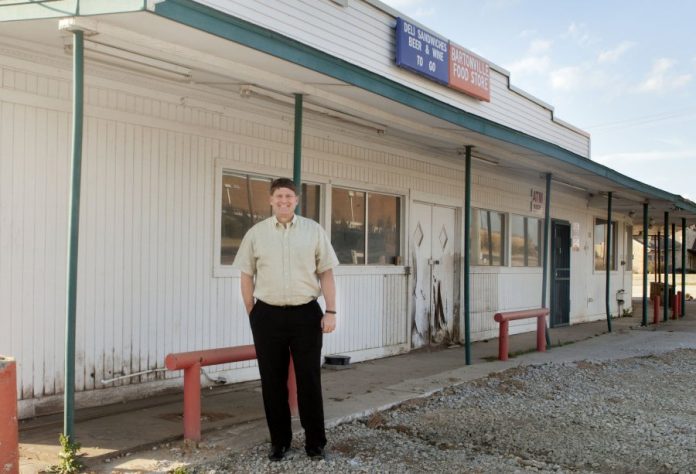
Bartonville is making history.
The town’s first historical marker was approved on Jan. 29 by the Texas Historical Commission (THC) at the Commission’s first quarterly meeting for 2016.
The Bartonville subject-marker was sponsored by the Town of Bartonville and is for the site of the original Bartonville store location. The Historical Narrative was researched and written by Betty Medlock, a current member of the Town Council.
“I’d committed to the project back in January 2015,” said Medlock, who majored in history and communications in college. “Once I got started, I was ‘in-the-zone’ and was reading the old newspapers up in the main Denton library. I got involved with all those historical people; I began to feel like I’d see them along the road. It was a lot of work, but it satisfied the need to write a Master’s thesis.”
A subject qualifies for a marker if two basic criteria are met; historical significance and age. This designation honors the subject (not an existing structure, necessarily) as an important and educational part of local history.
The Bentley Bavester Barton family of Lafayette County, Mo., was among the many Southerners eager to leave the ravages of the Civil War behind and begin a new life in Texas.
The significance of the Town of Bartonville can be traced to two of the Barton’s, James M. and Bentley Ballard “B.B.” Barton, who recognized the potential for a commercial opportunity at the southeast corner of the A.R. Loving Survey sector of Denton County.
On Nov. 11, 1881, the Barton brothers purchased 10-acres of land recognizing the commercial potential of its strategic location—10-miles from Denton, seven miles from Lewisville, nine miles from Justin and 10-miles from Grapevine—would serve as the crossroads between the towns.
Although absent a railroad thoroughfare, the Bartons had positioned themselves along the “old wagon trail.” What would ultimately be known as Farm to Market Road 407—defining the town’s current eastern border—was well-traveled by local families heading to the markets in the nearby larger cities.
The drought of 1886-1887 tested the founders and the community they supported. The small community of Bartonville, with the store as its anchor, held on and continued to prosper.
In 1891, the store was sold to Benjamin F. Savage, who held it for a decade. During much of that time it was operated by John T. Simmons before he became a successful merchant in Denton.
In 1903, Savage sold his two-decade old business to Thomas B. Breeding, a prominent citizen in the community. His land holdings extended beyond the store acquisition and ultimately maintained nearly 200-acres of prime Bartonville land, until his death in 1930.
During the Breeding ownership, the store was destroyed by fire on two separate occasions; in 1909 and 1918. It was following one of those fires, that the re-built store was relocated from its historical site, to the property of the current store location at McMakin and Jeter Road.
However, there was sufficient commerce to justify its rebuilding and even an expansion with a second story; it remained a cornerstone of the community for decades. It hosted community groups and church services on the upper floor.
Darrel R. “Soakie” Pitt bought the store in 1938 and maintained its heritage, during the tough years of the Great Depression and World War II.
Sometime around 1944 there was a fire that destroyed the two-story frame building, according to local historian Jim Morriss. The Pitts rebuilt a smaller structure that still stands today.
The store was sold to Jim L. Ross in 1946; then A.M. “Archie” Alley in 1951. When Alley entered into a partnership with James C. Price in 1959, the final chapter of the store began.
In February 2013, after 130 years of operation, the Bartonville Store—the landmark identifier of the community—closed its doors permanently. Tough economic times and state mandates would be its ultimate demise. The property is currently owned by the Town of Bartonville.
“The town has removed the gas storage tanks and is finishing the remediation needed,” said Town Administrator Stacey Almond. “The town is getting appraisals on the property and will re-plat it for consideration by the council in April. It’s currently zoned for rural business and will be ready for bids in mid-summer.”
The subject marker for Bartonville will be placed at Bartonville Town Hall.
Read more about Bartonville Store’s history here.











 GIF.gif)






